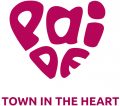The Feasibility Study for establishing a centre for the collection, sorting, recycling, partial repair and / or utilization of bulky waste and other used items (textiles, furniture, household appliances, etc.) in Mažeikiai is now complete.
The purpose and main results of the study were presented in a video call to Mažeikiai District Municipality and Telšiai Regional Waste Management centre representatives.

The study was prepared in the framework of the Circular Based Waste Management project which aims to help reaching EU targets related to waste management and establishing a long-term path for a circular economy.
The EU Directive 2018/851 has set new recycling and reuse targets for where 55% of waste will have to be recycled or reused by 2030 and 60% by 2035. Among priorities are also the development of schemes to promote repair and re-use, in particular of electrical and electronic equipment (EEE), textiles, furniture, packaging, construction materials and products as a means of preventing waste.
Waste prevention and re-use are top priorities for waste management in Lithuania. The Law on Waste Management mandates municipal waste management must be organized in such a way so as to encourage waste preparation for re-use and recycling.
The presentation offered a brief overview of the current state of waste management in Mažeikiai District Municipality and the Telšiai region.
A survey commissioned as part of the study also revealed positive attitudes by citizens towards secondary use of items and 95% would agree to give items not used to others for free. Residents would also welcome platforms for sharing used items.
The study examines current practices in Lithuania and experiences from other countries where there is strong focus on re-use including Norway, Slovenia, the United Kingdom, Austria, the United States and Hong Kong.

The main points to consider when establishing a re-use centre include creating an appealing residential infrastructure, placing efforts to attract SMEs, repairing of items and attractive presentation of these. A key element for successful implementation is education both in schools and through awareness campaigns.
The study narrowed the options for a large waste collection site to three types: Ramp, Bypass and Patio. It further outlined the advantages of each taking into account ease of access for users, locations proposed by the municipality for its establishment and financial cost.
Following discussion and feedback from the panel, the document will be updated to take into account financial matters and technological aspects discussed during the meeting that will determine the type of site to be established
The Circular Based Waste Management project is funded by Iceland, Liechtenstein and Norway through the EEA and Norway Grants Fund for Regional Cooperation – www.eeagrants.org.









